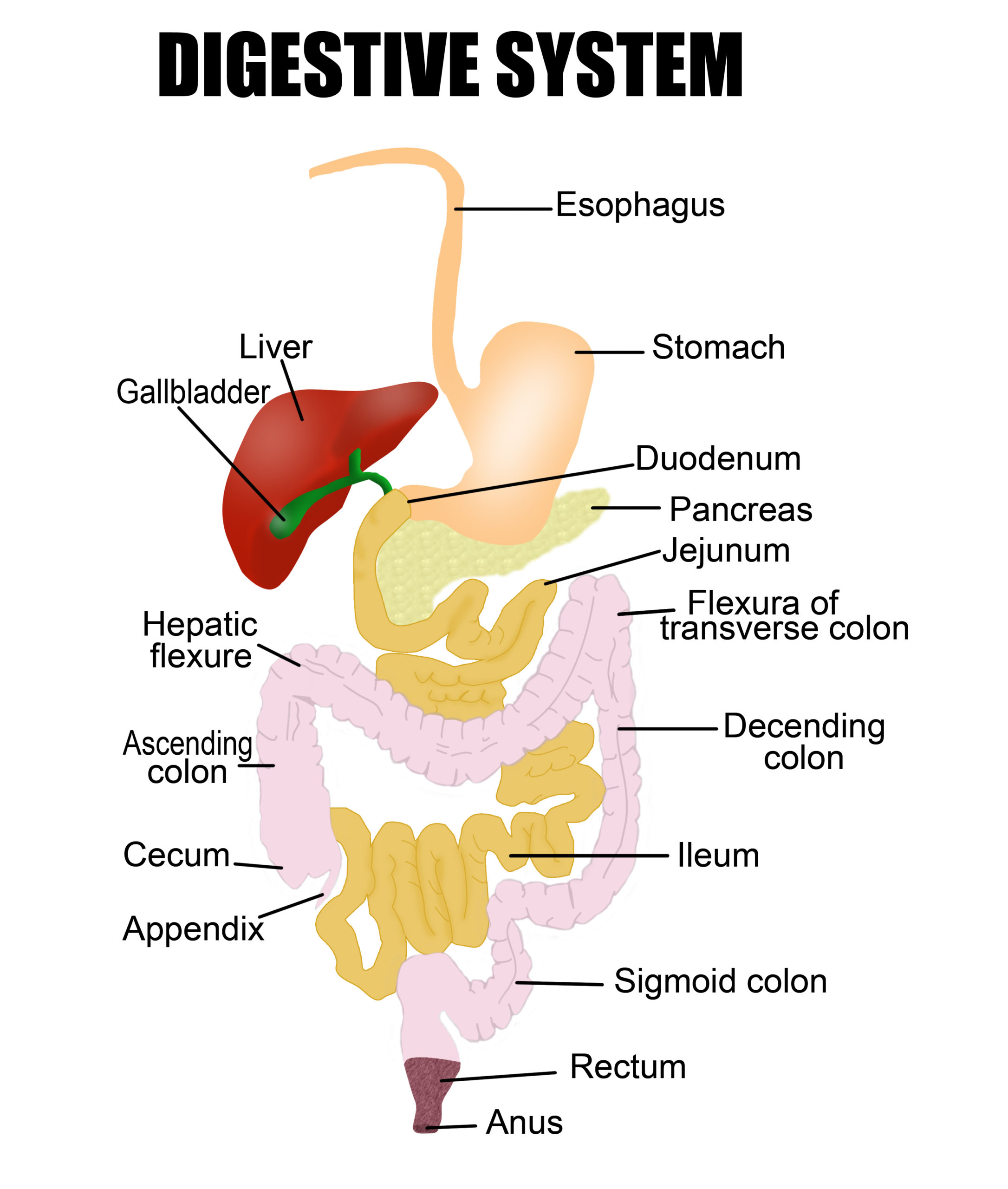
Did you know that up to 80% of your immune system cells exist along the digestive tract? This means that that the health of your immune system is intricately linked to the health of your digestive system. Here is more about that connection and how you can balance your gut microbiota, lower gut inflammation, and boost your immune system health all at the same time!
A Little Bit About Your Gut
The digestive system is made up of the GI tract, the liver, the pancreas, and the gallbladder. The GI tract is the largest component of the digestive system and is made up of the mouth, the esophagus, the stomach, the small intestine, the large intestine (i.e. the colon), and the anus.
The “gut” technically refers to the gastrointestinal tract. The word itself is sometimes used in a general sense to

indicate the entire digestive system (for instance, when experts refer to “gut health” and “gut imbalance”).
We all know that the “gut” (or the GI tract) is the place where food winds up when you eat. But why is it so important?
As it turns out, every part and function of the GI tract is really important, not only to digestion but to all functions of the body. This is because the main job of this system is to move food as well as liquid steadily along, to break it down into smaller parts, and, ultimately, to get the nutrients from what we eat to the areas of the body that needs them most. It is also the job of certain mechanisms, like the liver and colon, to expel the waste and toxins left over from the digestion process. The nervous system and the hormones (i.e. the endocrine system) play key roles in digestion as well.
The Gut and the Immune System
The gut is especially important for the immune system. Why? As mentioned in the intro, the majority of immune system cells reside in the upper GI tract in the form of gut-associated lymphoid tissue (GALT).
At first, it may seem strange that so many immune system cells should be housed in the gut. But once you understand a few things, then it begins to make sense. The GI system is one of the major avenues that the internal mechanisms of the body interact with the outside world. We are also exposed to pathogens in this way as well. When toxic agents come into contact with “immune system soldiers” stationed right there within the GI tract, they can get to the business of destroying them right away while letting healthy substances pass by.
Truth be told, to this day researchers themselves continue to learn how the digestive system, and especially the gut microbiome (i.e. the diversity of both beneficial and pathogenic bacteria in the gut), interact and work together to create health.
Slowly but surely, they are beginning to put the pieces together, however. The writers of a 2020 article in the journal Nature found that the types of immune cells in the blood actually change based on the different bacterial strains that exist there. The investigation conducted by the Sloan Kettering Institute was conducted over a 10-year period on over 2,000 patients.
“The study proves what has been said by functional medicine for decades …our microbiome is so important in shaping our immune system,” said Dr. Jennifer Kessmann, a functional medicine doctor in Dallas, Texas, in a recent interview regarding the new study.
Previous investigations have also found that the diversity of a person’s gut microbiota is directly connected to a more balanced immune system overall.

Is Gut Inflammation Connected to Cancer?
Another name for gut inflammation is gastritis. In very general terms, gastritis is when the stomach lining becomes inflamed. Gastritis can occur for a variety of reasons, including excess alcohol consumption, bad diet, and stress. The result is the same, however: an imbalance of good and bad bacteria in the gut.
Gastritis is linked for many people to an overabundance of the pathogenic bacteria H. pylori. H. pylori typically get out of hand when there is a breakdown in the inner lining of the stomach, also called the stomach mucosa.
Whenever there is an imbalance of good and bad bacteria, this is known as gut dysbiosis. Gut dysbiosis is extremely common all over the world and is directly related to ulcers, Irritable Bowel Syndrome, and diabetes. If not corrected, gut dysbiosis can also lead to other conditions such as autoimmune conditions and even cancer.
A 2019 study conducted by researchers at the University of Granada in Spain and published in the British Medical Journal found that “the risk of breast cancer could be associated with the composition and functionality of the mammary/gut microbiota and that exposure to environmental contaminants (endocrine disruptors, EDCs) might contribute to altering these microbiotas.”
Once you begin to understand how intricately connected the gut and the immune system are, you are on the right road toward making sure that both GI health and immunity are super-powered on your Healing Journey!